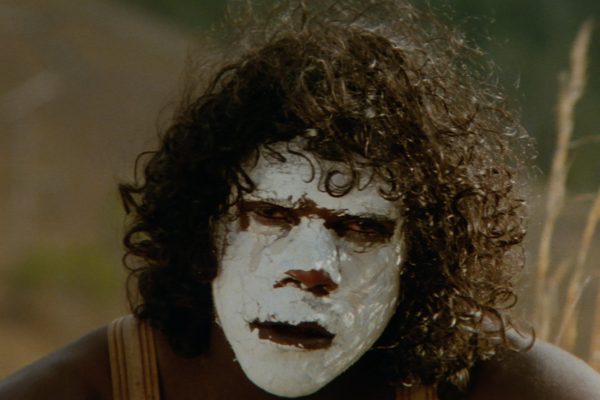While not universally well known in the UK, The Chant of Jimmie Blacksmith is commonly regarded as one of the most important Australian films of all time. Based on a book by Thomas Keneally, itself based loosely on the real-life story of Jimmy Governor, it’s a tale of cruelty, racism and savage vengeance.
It’s decidedly a film of two halves. Jimmie (Tom E. Lewis) spends most of the first hour either being shunned by white people, or hired by them, and then swindled or threatened into leaving. Even after securing a job with the local police, he’s forced to buy his own boots and turn a blind eye to the abuse and murder of black prisoners. The real shock to the system comes around the midpoint, where Jimmie is mistreated to the point where he threatens his landlord and then resorts to an act of shocking savagery against the man’s family. The latter half of the film becomes more of a road movie, as Jimmie and his brother must now flee the angry vengeance of the family and the law.
It’s a film that takes great pains to show in no uncertain terms the absolute guilt of everyone involved. Although Jimmie and the other Aborigines are clearly far more wronged, the film never shirks from making clear that no-one is happy with Jimmie’s disproportionate responses. But that’s rather the point of the film, and part of its genius. Jimmie is a man torn between two worlds. Ripped from his people at an early age, drilled deep with Christian guilt and taught to find the actions of other Aborigines disgusting. But equally, he’s a man that the white folks don’t respect. Even when he finally finds something like a home, and takes a white wife, he’s a laughing stock.
What holds up best about this film is that it’s beautifully shot; on a budget of over $1m, which was a princely pocket at the time in Australian film. This contrasts with the strange matter-of-fact cheapness of the gore and violence, which makes it somehow even more visceral. Even now in a high definition master, the practical effects are repulsively real looking. The new remaster on this release is also complemented by a similar one of the slightly shorter European cut of the film. This release also has a fascinating commentary by director Fred Schepisi.
Another aspect to take away is that almost 50 years on, there’s a pertinence to its evocation of violence in 1890’s New South Wales. The sobering poverty of the slums the Aborigines are forced into are contrasted with the prettiness of the bars and parlours of the white farmers. While the violence occurring is pointedly offset with various conversations about the Boer War, which was raging at the time. A parable about the dissensions we create between ourselves couldn’t be more valuable than right now.
On DVD & Blu-ray from Mon 19 Aug 2019
